In conversation with Youth IGF leaders from across the world, Tomas Lamanauskas - Deputy Secretary General of the ITU - heard young people’s input on his three main priorities: connectivity, sustainability and cooperation with partners to make the ITU an organisation fit for the times we live in.

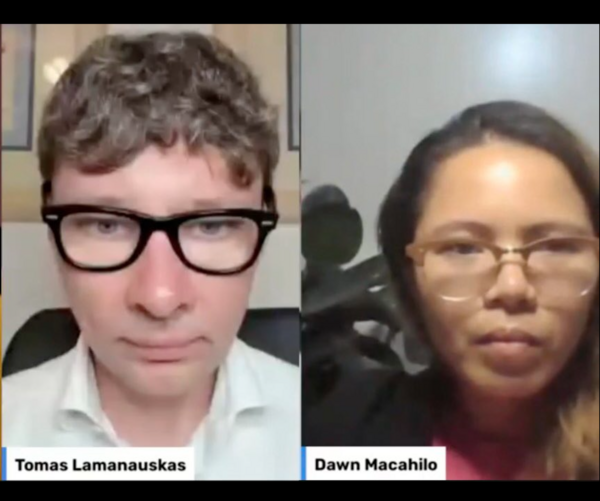
What is the impact of the International Telecommunication Union on our everyday lives and how can it improve them? The ITU supervises the deployment of wireless technologies, like radio, satellites, and Internet and mobile networks.
Whenever we connect to the Internet, or even just participate in a Zoom call, we rely on the standards set by the ITU - Tomas Lamanauskas, Deputy Secretary General of the ITU
The issue of connectivity was addressed from different perspectives. First, Dawn from the Philippines emphasised the role of 4G technologies in the proliferation of e-commerce and digital entrepreneurship in South Asian countries like the Philippines, Indonesia and Malaysia, including in rural areas. Although more and more people, and the young in particular, are becoming both consumers and sellers online, the lack of connectivity is still an impediment for them. Tomas Lamanauskas highlighted that one of his efforts will be to gather the community of investors around the table and discuss the importance of allocating funds to improve connectivity all over the planet, particularly in Asia. The ITU will also help countries make their investment environments more attractive for capital.
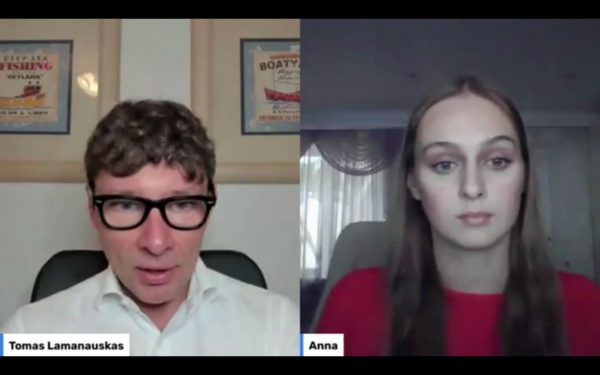
Secondly, Youth IGF leaders were interested to know about the role of the ITU in maintaining telecom infrastructure and connectivity in wartime. Anna Krupnik from Ukraine presented the case of her country, where the infrastructure in a number of regions has been destroyed due to severe bombing and people have lost mobile and Internet connectivity. Tomas Lamanauskas sees the role of the ITU in facilitating the harmonisation of partners, for example from the European Union, in order to help restore the damage in an affected country through collective action.
Connectivity for schools is recognised as one of the priorities for the ITU - Lamanauskas.
A lack of broadband, especially in rural areas, sometimes forces teachers to travel in order to get access to an Internet connection, which are often situated far away. This is the case for Samwel, a teacher from Tanzania, who walks an hour in one direction to find learning materials for his students online. The ITU hopes to help such educators and schools connect to the Internet, specifically through the GIGA project. Led together with UNICEF, this is aimed at bringing connectivity to every school in the world. According to Lamanauskas, the benefit of connecting schools is that ultimately this brings surrounding communities together and spreads connectivity further. In addition, children learn how to use digital technologies and become able to transmit this knowledge to older generations.
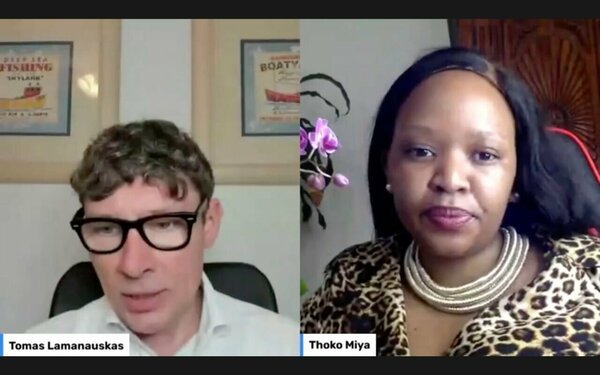
Another challenge is the high cost of mobile data, which results in low Internet use. This is the situation in most of Africa, according to Thoko Miya from South Africa. One way to improve it is to promote the concept of community networks, which are already being used in some African countries. What’s more, countries like India show that it is possible to reduce mobile data costs, and other states have a chance to follow this example thanks to the unifying role of the ITU.
The ITU is a good platform for everyone to learn from each other - Lamanauskas.
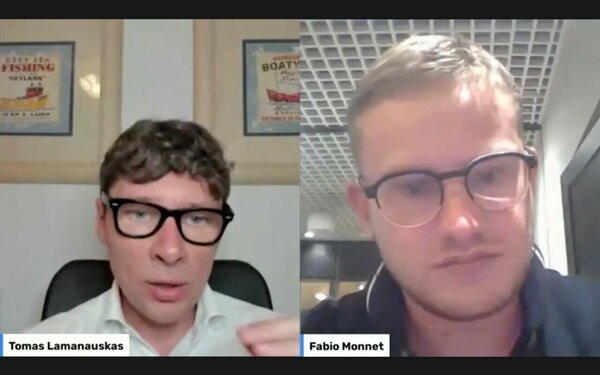
This idea refers to sharing best practices in every area, including sustainability. Fabio Monnet from Switzerland asked about the work of the ITU in tackling e-waste and incentivising the recycling of disposable devices. Tomas Lamanauskas explained that the ITU is already engaged in awareness-raising activities, informing people about how to reduce their environmental impact in everyday life. Some actors are already adopting new policies to fight e-waste. The European Union recently proposed the idea of a common charger for all electronic devices.
The ITU should really harmonise such efforts, acting as an advocate, a standard-setter and a best practice exchanger. It should also ensure that the problem is not exported and that developing counties do not become a haven for e-waste, which was of particular concern to Sandy from Haiti. It will be important for the ITU to help solve this problem globally and not simply “move the problem”, as Tomas Lamanauskas said, especially by urging policy-makers to recognise electronic waste as a risk to the environment and implement solutions to address it. Environmental considerations must become part of a standardisation process concerning e-waste governance, and sustainability must be the backbone of every project and initiative.
To become an organisation which is fit for the times, the ITU might also participate in discussions about issues such as digital ID, digital residency and the Metaverse, suggested Dunsin Fatuase from Nigeria.
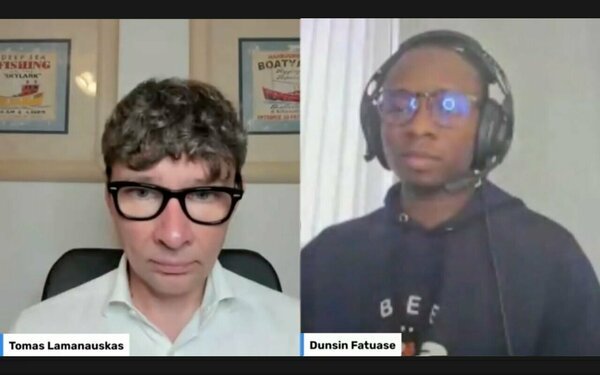
Should their development be only in the hands of the private sector? Tomas Lamanauskas believes that the ITU has an obligation to participate in debates around emerging technologies. Having a broad range of expertise with a deep understanding of digital technologies, it should cooperate with human rights advocates, public and private sector representatives and participate in both technical implementation and the discussions about societal implications of modern technological trends.
The ITU will also provide young digital leaders with strong support, mainly through its Generation Connect programme. Tomas Lamanauskas’ idea is not only to ensure young people are included in the work of the ITU, but that there is succession and that the youth of today will become the future generation of specialists working in the ITU’s priority areas. The ITU needs a guaranteed flow of fresh ideas and new decisions.




Comments 0
The comments section is closed for articles published more than a year ago. If you'd like to inform us of any issues, please contact us.